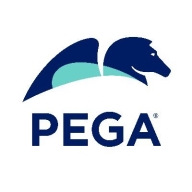

Pega Platform and IBM Case Foundation are key players in the business process management (BPM) arena. Pega Platform holds the advantage due to its robust process visualization, integration capabilities, and rapid prototyping features.
Features: Pega Platform specializes in process visualization, configurable workflows, and agile integration services, making it ideal for enterprises seeking a unified architecture for business process adjustments. IBM Case Foundation focuses on content management, integration with document workflows, and decision-making features, catering particularly to industries reliant on document and content management.
Room for Improvement: Pega Platform users suggest enhancements in cloud infrastructure, user experience design, and support for RPA and AI integrations, with pricing and technical support responsiveness also cited for improvement. IBM Case Foundation could benefit from a modern workflow engine, expanded integration options, and a more flexible user interface, alongside better adaptability to changing business requirements.
Ease of Deployment and Customer Service: Pega Platform offers deployment versatility across public, private, hybrid cloud environments, and on-premises, though its technical support has mixed reviews. IBM Case Foundation is predominantly on-premises, known for solid technical support, yet users face challenges with responsiveness and personalized problem-solving.
Pricing and ROI: Both Pega Platform and IBM Case Foundation are premium solutions, reflected in their pricing. Pega Platform is often considered costly but delivers substantial ROI through comprehensive features that enhance business process efficiency. IBM Case Foundation offers mid-range pricing with cost-effectiveness when bundled with IBM's Automation Pack, providing substantial ROI, particularly appreciated when used as part of an integrated offering.


Pega Platform facilitates business process management, case management, and workflow automation for industries like banking, insurance, and healthcare. It supports digital transformation and customer service enhancements with its low-code capabilities and seamless integrations.
Pega Platform enables users to create efficient systems for case management, financial operations, and digital transformations. It provides tools for client onboarding, quoting, claims processing, customer experience improvements, and content management. Pega's low-code approach allows for the automation of complex processes, making it suitable for enterprises looking for adaptability and rapid deployment. While it offers strong real-time analytics and decision automation, users acknowledge challenges in user interface, integration, and performance aspects. High costs and a learning curve need attention, and enhancements in AI features and cloud services are desired.
What are the key features of Pega Platform?In banking, Pega Platform automates loan processing, accelerates customer onboarding, and manages compliance. Insurance companies benefit from streamlined claims processing and policy management. Healthcare sectors use the platform for patient engagement and care coordination, enabling organizations to adapt quickly to changing industry requirements.
We monitor all Business Process Management (BPM) reviews to prevent fraudulent reviews and keep review quality high. We do not post reviews by company employees or direct competitors. We validate each review for authenticity via cross-reference with LinkedIn, and personal follow-up with the reviewer when necessary.